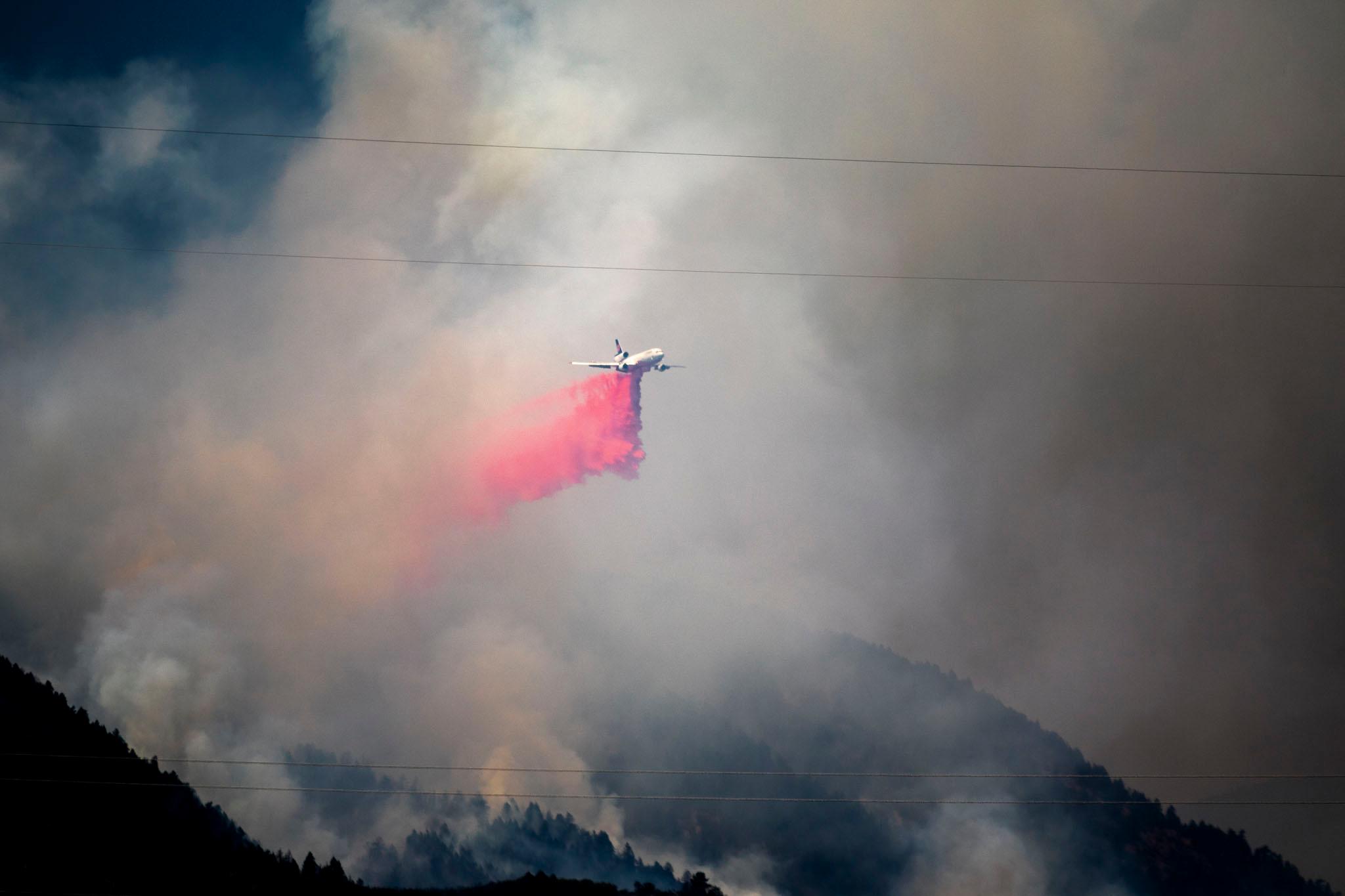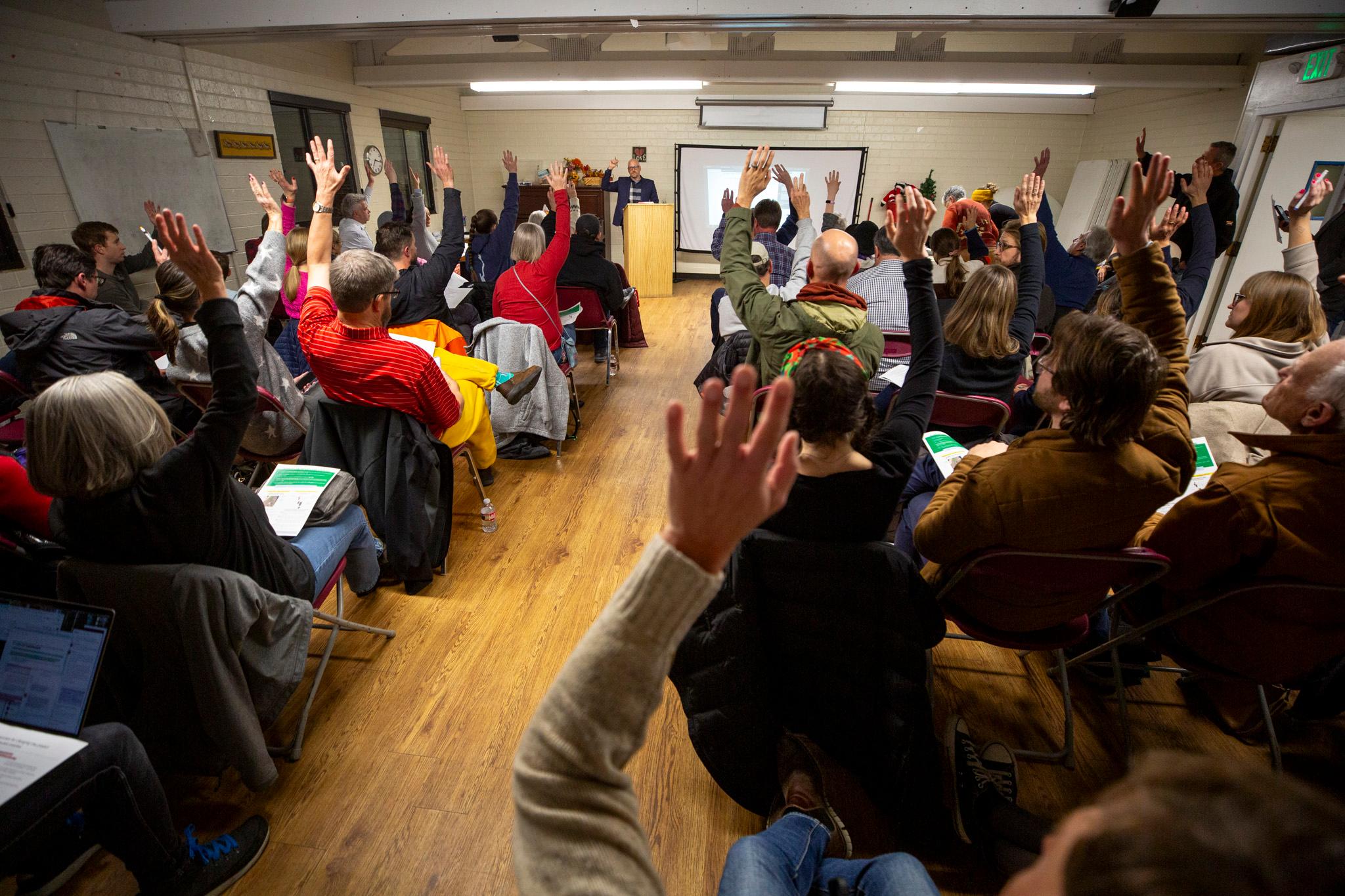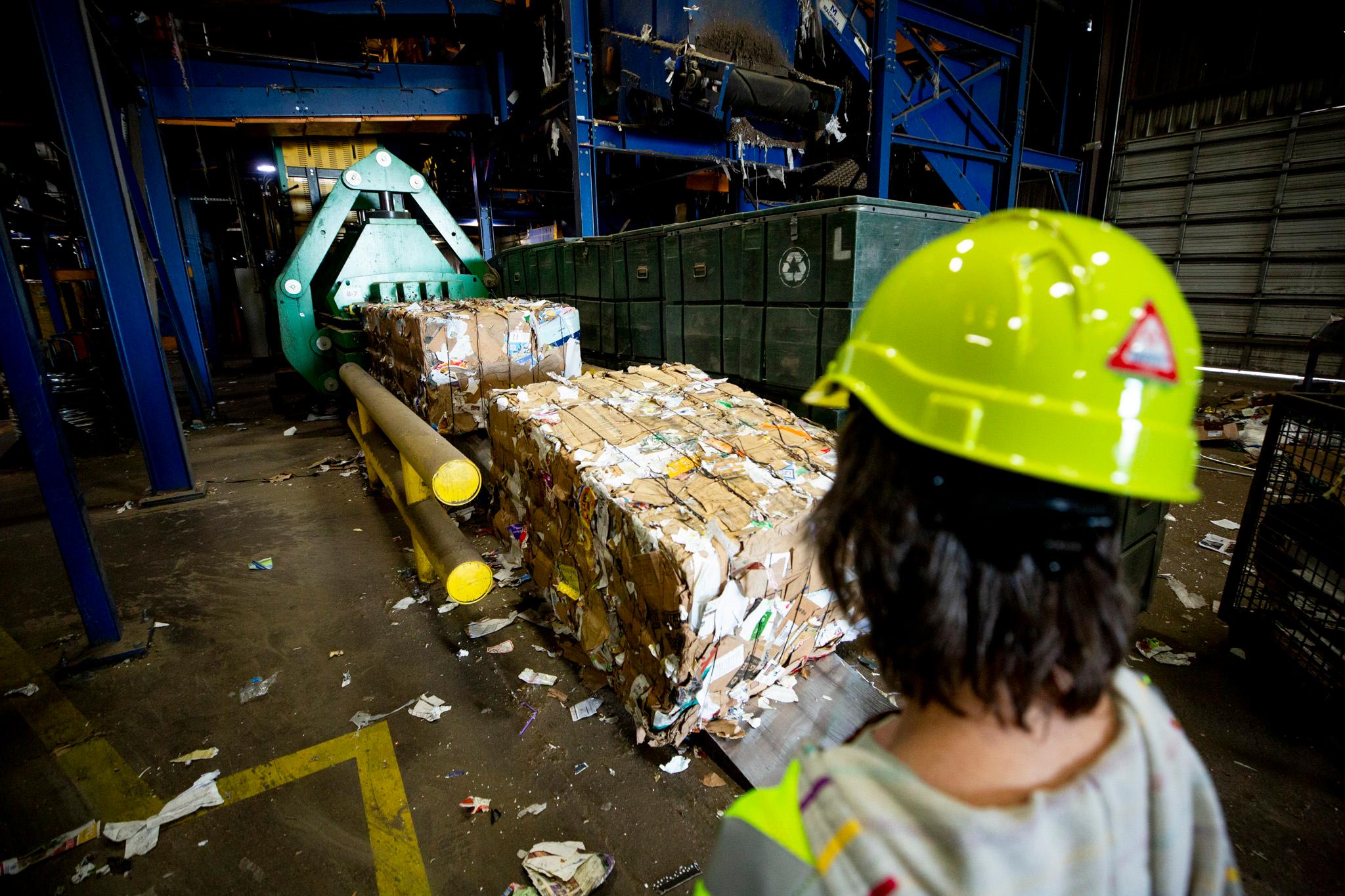Lately, Miranda Doran-Myers has had to choose between two terrible fates before bed.
Should she open her window, allowing cool air into her stuffy attic bedroom and have to breathe smoky air? Or should she keep the window closed, save her lungs and bake as she sleeps?
"I'm definitely feeling the wildfire smoke!" she wrote Denverite. "I recently had sinus surgery, so my nose and respiratory system are already really sensitive — adding intense heat and bad air quality is making the healing process more difficult."
Those fires were last week's big headlines, with at least four named blazes burning at once across the Front Range. Denver saw plenty of smoke while the state mobilized to contain the fires.
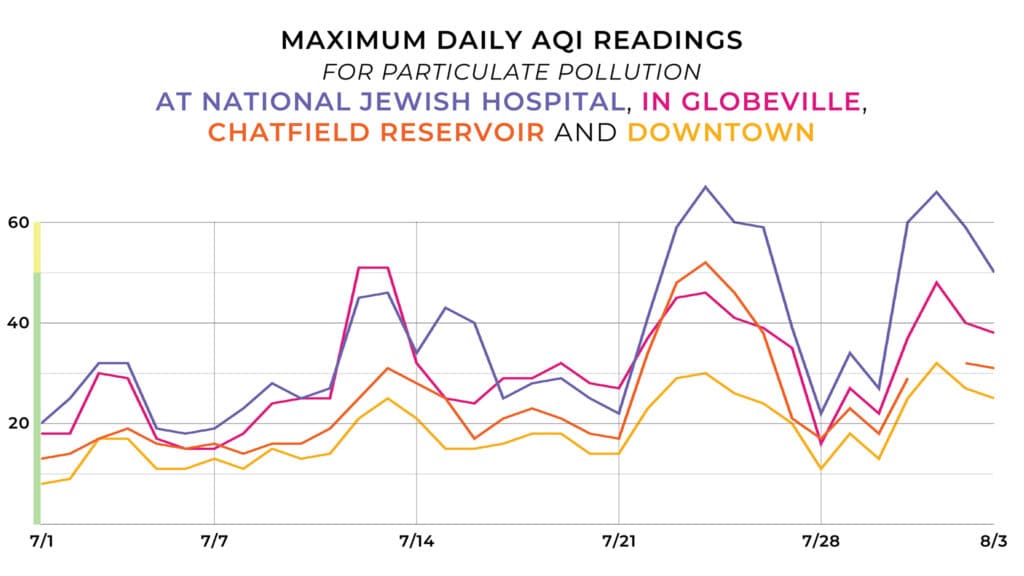
It's a bad situation for people in Doran-Myers' shoes, adding to a few more weeks of bad air last month. Denver's skies started to clear up this weekend, but there's no telling how the next few weeks will go.
Air pollution last week was three times worse than it was at the beginning of July.
That's according to data collected by the Colorado Department of Public Health and Environment (CDPHE) at four local monitors: at National Jewish Health, in downtown Denver, in Globeville and at the Chatfield Reservoir southwest of the city.
Our primary metric for this is the EPA's Air Quality Index, or AQI, which converts readings on the amount of pollution in the air into a scale that's meant to communicate health risk. Scores of 50 and below is considered "good." Anything over 100 is considered unhealthy.
CDPHE's data shows AQI levels measured last week were three times worse than the clearest few days in July, though they never rose above 100. It mirrored what we saw the week of July 22, when smoke from fires in the Pacific Northwest and Canada wafted over the Front Range.
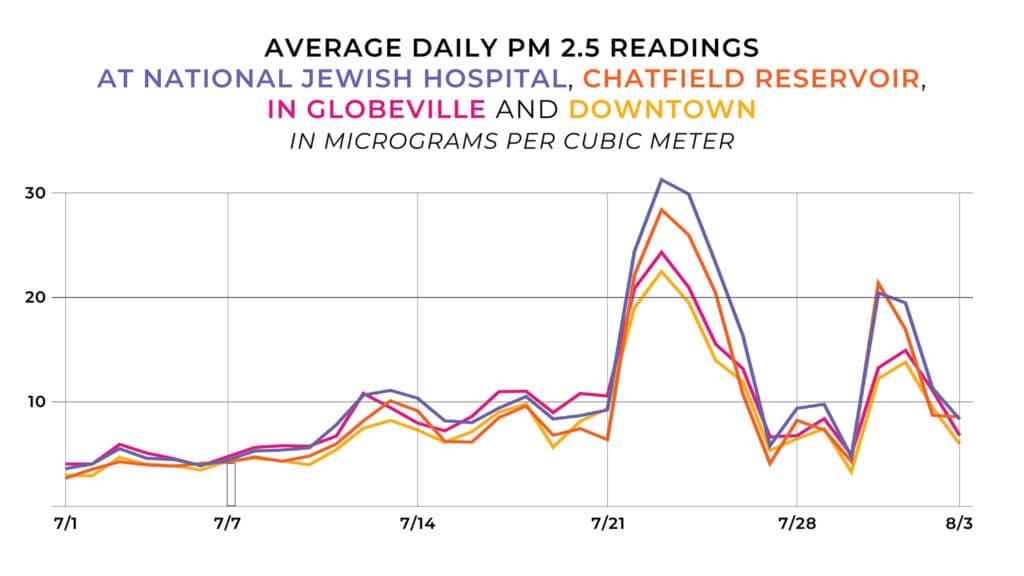
The state's systems did not log AQI levels for the Chatfield monitor, which might be the result of their quality control systems confusing a big spike with an error.
There was a big spike, though, from smoke blowing in from the nearby Quarry Fire. Readings of fine particulate pollution measured there — in this case, PM 2.5 — were about five times worse on Wednesday than they were in early July.
Things are looking up, but the future is as opaque as the skies.
Doran-Myers' choices got easier over the weekend. Both particulate levels and AQI readings dropped through Saturday, with good signs ahead.
"We do anticipate more showers and thunderstorms across the state early next week. Rain and wind could help dissipate surface smoke concentrations," CDPHE spokesperson Leah Schleifer wrote us.
Still, she added, smoke is never that simple.
"There are several factors that are nearly impossible to predict at this time, including the future behavior of Colorado’s currently active wildfires and wildfires from states upwind," she said "All of these factors will have a significant impact."
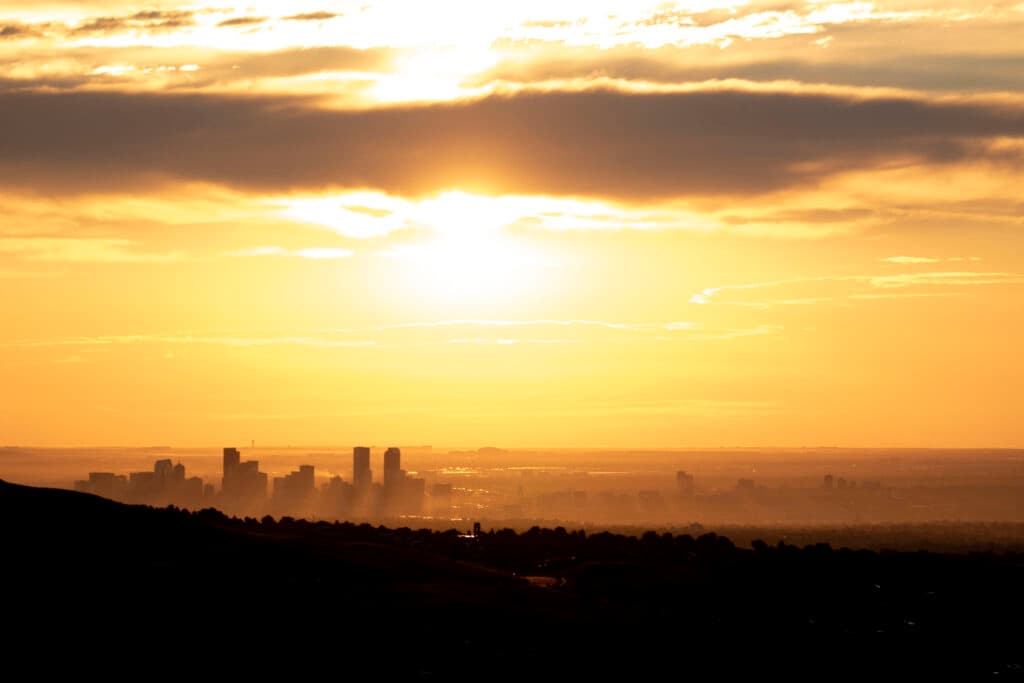
How the wind blows, and how the country burns, is all in play. If more local fires pop up, she said, some areas could see more intense pollution. If prevailing winds move a blanket of smoke from Canada, we'll all be breathing ash.
Both scenarios are made worse by climate change. That's something that Doran-Myers, who moved to Denver to spend as much time outdoors as possible, said has been on her mind.
"It's kind of sad, every summer I feel like, because of allergies or my lung health, that I don't want to go outside," she told us. "It makes me wonder: is it still a good quality of life in Denver if I cant do the things I want to do?"

